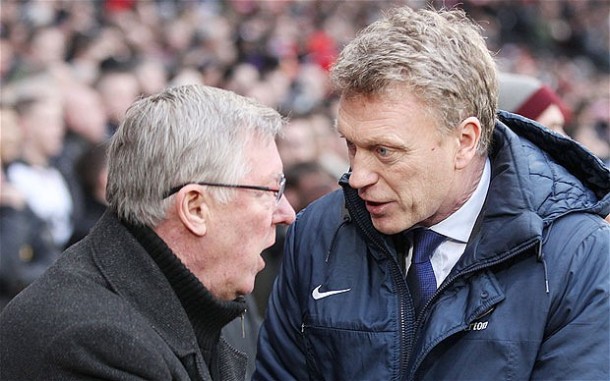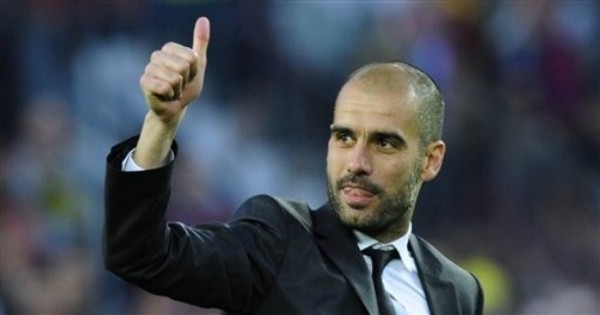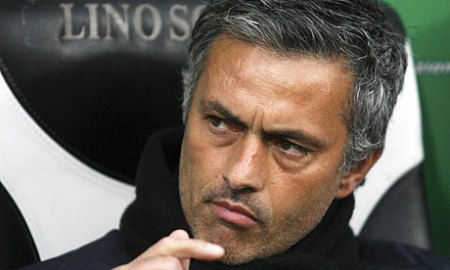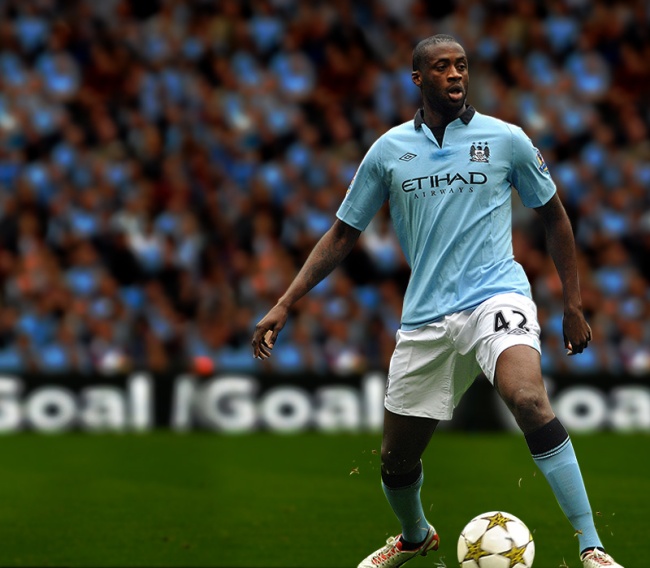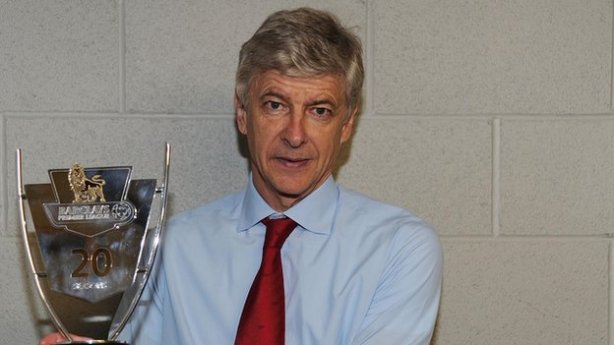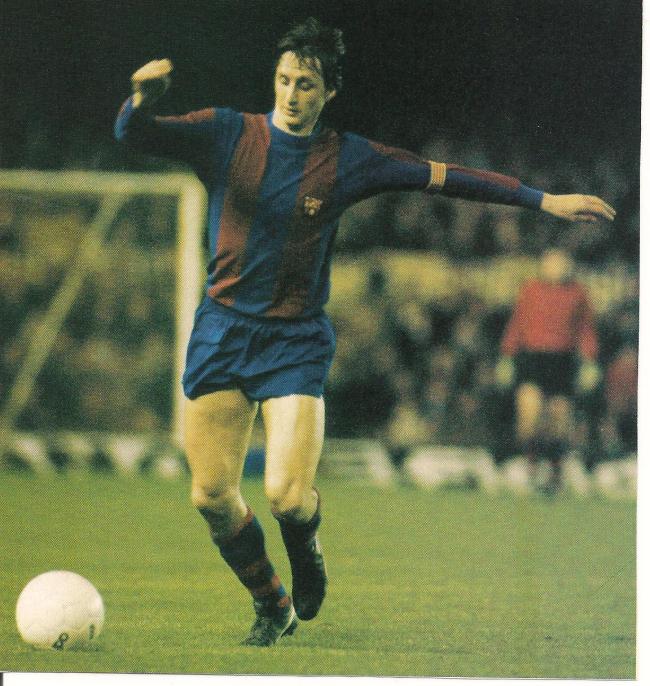This Premier League season has been highly entertaining and we may in fact witness the beginning of an new era of English football – one might call this the “Post-Sir-Alex-Era”.
It’s not just Manchester United who’s struggling to find their feet after Sir Alex Ferguson’s retirement – also the Premier League itself has been quite unpredictable because of new power structures, new tactics and the many new managers, most notable of course Sir Alex passing the torch to fellow scotsman David Moyes.
Chelsea and Manchester City had a struggling period of time at the beginning of the season, where they had to settle in to their new managers, whereas clubs like Liverpool and Arsenal benefited from their managerial consistency, and performed well right away. This season underlines the importance of stability. But where Man City and Chelsea seem to have found their game, their concept and a continuous rhythm under their new managers, Manchester United obviously is still struggling with the transition. And this has not just something to do with David Moyes – in fact this has more to do with Alex Ferguson. The one, the only, the genius from Scotland!
Manchester United
When you take a closer look at the Manchester United squads Sir Alex had available during his time at Old Trafford, you’ll see some amazing players all around. But what strikes me as obvious, is the prolific amount of profiles in the 90’s compared to today. The United team included players like Cantona, Schmeichel, Keane, and the young Golden Generation with Beckham and the Neville brothers, and most importantly: Man United possesed the highest quality on EVERY position. Back then, all the players were world class – if not the best in the world on their particular position, such as Schmeichel and Keane.
After Beckham left United in 2003, of course you had the occasional, individual brilliance of Christiano Ronaldo, Wayne Rooney and Robin van Persie, and in general all the players were great, but the last 10 years of Ferguson’s reign at the club, the squad didn’t have the same prolific profiles as in the 90’s.
AND YET UNITED WON TITLE AFTER TITLE!
Which brings one to the conclusion, that Alex Ferguson is a magician! Apart from an obvious tactical flair, flexibility and ability to make people work together, he worked wonders with the players’ mentality and he implanted in the team an unbeatable winning mentality! What impresses me the most about Fergie’s record, is not the treble of 1999 with all the legends on his team, but the double of 2008 – and even his last league title in 2012-13 is quite remarkable, when you compare United’s squad that season with the one of Man City. In fact, some of Ferguson’s most brilliant players in the recent decade were the remaining ”dinosaurs” from the Golden Generation: the fantastic Paul Scholes and Ryan Giggs (the latter impressively still going strong at 40 years of age).
When City demolished United 6-1 at Old Trafford in October 2011, pundits talked about how the landscape of the Premier League had changed immediately from that day on. Those voices silenced as United went on to win the title the following year. But even though the incredible Ferguson went out on a high note last season with a title, the 6-1 game back in 2011 was perhaps the beginning of the end of an United dominated Premier League.
When you look at the current squad of Man United, you might expect them to do better in the league this season, but if you compare the United players with the players of City or Chelsea, would you really expect them to be the dominating force the club used to be? Or even lead the league? Of course players like Evra, Vidic, Jones, Carrick, Rooney and van Persie are all fantastic players, but nothing suggests that they should be superiour to Chelsea’s Terry, Cahill, Luiz, Hazard, Eto’o or Man City’s Kompany, Lescott, Yaya Toure, Fernandinho and Aguero (by the way, in David Silva, Man City has the type of creative force in the midfield which United has so desperately missed this season).
In fact, when you study the United, City and Chelsea teams, in terms of quality, they all look quite equal. And it is not just this season – this has basically been the case for the last 10 years. When United, in spite of this, remained a dominating force the last couple of years, a lot of credit goes to the brillance of Sir Alex Ferguson.
David Moyes has made some mistakes (tactically during games, as well as the pre-season firing of parts of the staff), but it’s an almost impossible task to succeed Sir Alex and to take over a team handpicked by the legendary predecessor, with the outside world expecting the same results.
With or without David Moyes, Manchester United will probably do a lot better in the upocoming seasons, they might even be a title contender next year, but the “Post-Sir-Alex-Era” can get even tougher on the club than it already is, if the club establishes itself as a sort of “normal” top 4 team, without being the dominating force of the Premier League which they have been consistently during Sir Alex’ reign.
And so, Ferguson’s retirement has left not just Manchester United, but the entire world of English football, upside down.
The football revolution
Sometimes revolutions happen in the world of football. Sometimes some people have new ideas, go in new directions and new decisions are made – and those decisions have a major impact. Such a revolution has happened in Spain, where Pep Guardiola’s perfection of the tiki-taka style during his tenure as Barcelona manager changed the landscape of the world of football. The tiki-taka style was actually more or less implemented in the 1990’s by the former “Dream Team” of Barcelona and its brilliant manager Johan Cruyff. And as Guardiola recycled Cruyff’s ideas, Cruyff himself was inspired of former Dutch coach Rinus Michels’ ideas from another football revolution: the Dutch invention of “Total football” in the 70’s. But Guardiola’s perfection of the style has changed the world of football significantly. Due to the outstanding results of Guardiola’s Barca team, more and more European teams are playing tiki-taka inspired football with short passing and movement, high pressure and the maintaining of possession. One of Alex Ferguson’s greatest tactical weapons as manager of Manchester United was the high level of possession on the United midfield, and in the global world of football managers like Cruyff and Ferguson may have inspired one another. Ferguson shifted easily between different formations: 4-4-2, 4-5-1 and 4-1-4-1. The latter could be a 4-1-4-1 when United didn’t have the ball, and approaching a 4-1-2-3 when they did – that means that Ferguson during matches temporarily used the exact same formation as Guardiola! However, not the entire time.
The disadvantage of the tiki-taka style, from a spectator’s point of view, is when Barcelona, on some less inspired nights, starts to play the ball around without any directness at all! As journalist Guy Hedgecoe claimed: “With no strikers, no defenders…no goalkeeper, perhaps, just 11 technically blessed midfielders merrily passing the ball around until someone walks it into the net”. However, I have the feeling that some of the criticism that has been raised against this particular style, might be related to pundits being bias to certain clubs – and for me, it’s obvious that the tiki-taka style is not only beautiful and hugely entertaining, but also very effective.
Due to some disappointing performances by English teams in the Champions League in last couple of years, pundits have been pointing out that the Premier League lacks the level of imagination you’ll see in some other European leagues. Roy Keane contributed to the debate with his latest comments about how people are being brain-washed to believe in the superiority of the Barclay’s Premier League, which according to Keane is nonsense. And yes, compared to the height of Guardiola’s tiki-taka revolution only a few years ago and the new innovation in the playing style in German football (both on the national team and in the Bundesliga), one could argue that the response from English football in general has been reactionary, timid and un-imaginative. Even the appointment by FA of Roy Hodgson as manager of the England national football team, pointed in a less modern direction, when you compare Hodgson’s style of play with the one of for instance Germany’s Jogi Löw. And rather than trying something new, English clubs have chosen familiar faces and familiar tactical approaches to the game when they looked for new managers.
Liverpool
Bringing a new manager and new ideas to a club can be a difficult and elongated process, which is why I just talked about the importance of stability this season. However, what makes football fun and interesting is great vision – both on the pitch by the players, but also on the managerial level and in the directions set by the board. If there’s a club which has possessed, in these times, a rare combination of patience and vision, it’s Liverpool FC!
The American owner of the club John W Henry didn’t go for a famous and established name, when he appointed a new manager after Kenny Dalglish. He went with a young visionary: Brendan Rodgers, who had intrigued the league with his attacking, yet well organized type of football during his spell as manager of Swansea. And Rodgers has indeed brought new ideas to Liverpool FC, and by doing so, he has been a breath of fresh air in the league. Playing a high tempo, 4-3-3 kind of football, with only one defensive midfielder, one could call Brendan Rodgers the Pep Guardiola of the British Isles.
Pep Guardiola:
“You win the ball back when there are thirty metres to their goal not eighty.”
And what the Liverpool midfielders lack in strength, they have in speed and in passion for high pressure and constant passing. The differences between Rodger’s attacking, 4-3-3 playing Liverpool side and Mourinho’s defensively solid, 4-2-3-1 playing Chelsea side, are almost as explicit as the tactical battle between Guardiola’s former Barca team and Mourinho’s Real Madrid. Although no team can be compared to the legendary Barca team under Guardiola, Brendan Rodgers’ Liverpool team has become one of the most visionary innovations in the Premier League this season.
Even though Steven Gerrard sometimes has a tendency to react to the opposition rather than to be proactive in his new role as defensive midfielder, his out-of-this-world long passes add various possibilities to the Liverpool attack – not tiki-taka passing all the time, but sometimes a direct pass from the captain to suit the speed of Sterling, Sturridge and Suarez. There was a short period of time around 2007, before Messi and Christiano Ronaldo were on the top of their games, when Ronaldinho got injured and Zidane had retired, where Steven Gerrard maybe was the best player in the whole world. He’s nowhere near that standard now, he has lost too much speed due to age and injuries, but he’s still a classy and absolutely brilliant footballer, and I believe Rodgers is right to try the legendary Gerrard on the new position.

The Liverpool success this season did not come out of the blue. The quality and the results show that the ideas and strategies of Rodgers were already implemented by the players during the end of last season, and credit goes to Rodgers as well as owner John W Henry for the patience he and the Fenway Sports Group showed in this process. The results weren’t always pretty in the beginning, but Rodgers had Henry’s trust all the way through. Even though Liverpool is a great club, the bad results never led to panic, and the patience is beginning to pay off, due to the excellent vision and creativity of Brendan Rodgers, who’s a manager with a clear vision and a clear agenda. Nothing is left to chance in his managing, and because this discipline is being used in the purpose of entertaining and attacking football, we’ve seen some innovative, tikitaka-like beauty and effectiveness this season from the Reds. And Rodgers has a deep and humble respect for his new club and its history, yet he never hides from the fact that Liverpool Football Club is expected to be in the top of the league. But his results are impressive when you consider he’s coaching a club which isn’t nearly as rich as Chelsea or the Manchester clubs.
So even though John W Henry has to prove that he has the money to make Liverpool compete for the big names in the transfer windows, he has shown great leadership, not being so fixated on results that he fired Rodgers early on, but instead making the right long term decisions. Something many clubs in the Premier League could learn from.
Chelsea
In contrast to this, Roman Abramovich has been a club owner who might sometimes have focused more on the results, money and high profile names, rather than on future visions and on how to actually get results in the long run. Which is why Chelsea has had 5 managers in the last 5 years. But now the legendary José Mourinho is back at the bridge. And apparently he just never fails. I have never been a fan of his defensive tactical style and during his Madrid years, his team didn’t play as beautiful football as Pep Guardiola’s Barcelona, and even worse: Mourinho didn’t dissociate himself from the destructive behaviour and anti-fair play of Madrid players like Pepe. And it was outrageous to see Mourinho try to break up the phenomenal Barca game with fouls and defensive play.
But this is 2014 and even though I think that Mourinho still behaves like a child from time to time, I absolutely love his eccentricity and his arrogance towards themes of no importance. He’s without a doubt a colorful and wonderfully unpredictable figure – exactly what a sport needs, and his impressive record speaks for itself. One of his key attributes is exactly what he has brought to his Chelsea side this time around: stability! They are strong again defensively. Gone are the days where André Villas-Boas wanted John Terry to defend high, and gone are the days of a Chelsea team who was confused to have to deal with yet another manager. Dad is home! And as the season progresses, the whole team is getting defensively solid as a rock, and with enough attacking talent to ensure the results most of the time. A typical impressive work by Mourinho: growing stability, with a lack of flow in the attack as the biggest threat to their Championship ambitions. He has formed this club more than any other, and his ideas were somehow ever present even when he wasn’t the manager anymore. With his strategic ideas dominating the club, Chelsea probably won’t win a title due to spectacular Brazilian-like, creative football, but take their Champions League triumph in 2012 (with Mourinho-protégé Roberto di Matteo as manager) as an example: even though they didn’t play the most creative and beautiful tiki-taka kind of football, they showed what it means to fight! They fighted with lion hearts! It was inspiring and because of that, they deserved the title.
Where Brendan Rodgers sometimes asks his attacking players also to defend, Mourinho has (when he is most dangerous) a cautious team selection, but with a positive approach. But in the loss to Aston Villa at Villa Park a little while ago, the Chelsea attack seemed without purpose. They are always dangerous on set pieces and counterattacks. And José Mourinho is a master of defensive stability, but the last part of this season will show if he’s capable of adding a creative sense of purpose and stability to the Chelsea squad in every game. They need that, if they are to become champions.
Manchester City
Before this season I guessed that Manchester City would win the title this year, but now I’m not so sure anymore. Being an old fan of Manuel Pellegrini I had high expectations to his reign, considering the level of quality players available for him in this rich club. I’ve found his style of football in Real Madrid to be somewhat more positive than Mourinho’s (I’ve always loved some of Pellegrini’s flexible, almost 4-2-2-2 like formations), and he had some fine transfers – bringing Christiano Ronaldo and Kaka to Madrid. Pellegrini is a very flexible manager, who can make many tactical changes from game to game. Time will show if it’s confusing his players too much or giving them the tactical upper hand in the final stages of this season.
When the world of football decides to reward a player with titles like Player of the year or Ballon d’Or, most people seem to focus on strikers or the attacking players. But over the last couple of years, there’s a player – a midfielder – who has proved himself worthy of one the big titles, and his name is Yaya Toure. The prolific Ivorian has not received as much praise as he deserves. It’s unbelievable how this midfielder dominates the game, not only breaking up the opponents’ attack, but also by dominating and creatively controlling his own team going forward. And even though this might not be his best season, he’s right now, with 17 goals, number 3 on The Barclay’s Premier League topscorer table – as a central midfielder!? 3rd on the list! Right behind Sturridge and Suarez and in front of everyone else, including his brilliant teammate and striker Sergio Aguero. Yaya Toure is instrumental for City’s success, not just for his goal scoring abilities, but for the way he can totally dominate the midfield area, both defensively and attacking.
Tottenham
In the beginning of the season, the Spurs seemed to suffer from a lack of structure inside the club. Of course they had to sell Gareth Bale when Real Madrid offered the insane amount of money, but it’s been suggested that André Villas-Boas wasn’t entirely in charge of the following transfers, and that an internal power struggle seemed apparent. With Tim Sherwood as a sort of a “winner” of this internal struggle and appointed manager. As a manager he’s been refreshingly outspoken and emotional, but time will see if his lack of experience and composure will prove a disadvantage. And surely, it was questionable to criticize the players publicly. You won’t win the hearts and minds of the players – nor the fans – by doing so. So even though perhaps he won the 1st round of the internal power battle at the club, he has not been playing his cards well since, when it comes to holding on to his current position as manager.
A manager who was under pressure last season, but who has played his cards well ever since, is the legendary Arsene Wenger. The fact that this London-based, french manager persuaded Mesut Özil in fluent german, to come and play for Arsenal, was the coup of the year, and it just underlines Wenger’s class. Perhaps the lack of winter break has caused Özil’s recent bad form, but there’s no doubt that the German playmaker was the marquee signing of the year which all other managers in the Premier League would have dreamed of. This time Wenger wasn’t cautious at the transfer market, as he used to be…..
After the retirement of the great old Arsenal generation of “The Invincibles” with players like Henry and Bergkamp, Arsene Wenger started a new project: he wanted to build a new generation of greatness which could win titles. And after a couple of seasons a new fine generation arised at the Emirates with players like Robin van Persie, Cesc Fabregas and Alex Song. However, Arsene Wenger slept during some crucial transfer windows, where he didn’t bolster his defense enough. That was a fatal passivity and Arsenal lost its momentum and eventually lost Cesc Fabregas and Robin van Persie – they grew impatient with the inexperienced defense and the lack of results! After the arrival of Per Mertesacker, the Gunners solved at least some of their defensive problems, but right now the absence of a quality defensive midfielder like Patrick Vieira or even Alex Song is obvious. Mikel Arteta is a fine player, but more of a central midfielder than a defensive one.
Wenger seems to focus too much on the future and development of his team, and commendable as it might be, it’s perhaps on the expense of the results. But make no mistake, he’s a great manager with a great philosophy, impressive results – and he has embodied the previously mentioned importance of tactical stability for almost two decades now – in a top club which isn’t as rich as Chelsea and the Manchester teams. And the frenchman has also been consistent in his aim for positive and creative football at the Emirates – even 5-10 years ago, when most of the league seemed to be inspired by Mourinho’s more cautious approach and his 4-2-3-1 formation. I think the owners at Arsenal did well not to sack him last year, when the Gunners’ season started out extremely unsatisfying – and they should also show patience before firing the old man at the end of this season, which some pundits have suggested, due to the continued lack of titles. After a season with many injuries among his key players, Wenger deserves another chance, but he needs to start looking for a qualified defensive midfielder – and he has shown that he can still attract some fantastic players. Wenger has flaws, but he also has a clear vision.
Vision
No matter which tactical approach he preferes, a manager needs a clear vision!
Mourinho has a clear vision: among other things he wants to dominate the midfield with two physically strong defensive midfielders and one creative midfielder, while Pep Guardiola wants to dominate the midfield with ball possession, short passes, the use of only one defensive midfielder and an ongoing passing flow with two energetic creative midfielders. The sport needs both types of play, but British clubs could benefit from focusing more on technique than on strength. Physically speaking, the Premier League is already the strongest league in Europe, but it would suit British football to get inspired by the tiki-taka revolution.
Liverpool is not the richest clubs in the league, but because of the brillance, vision and modern innovation of its manager, they are still serious contenders for the title.
Barcelona’s home growing youth academy and Liverpool’s current season prove results are not just about money, Brendan Rodgers proves it’s not about experience, and Arsene Wenger and especially Sir Alex Ferguson prove it’s not about youth and freshness: it’s about stability, innovation and first and foremost: vision.
This is going to be an exciting end to a dramatic end fascinating season – the first one in the Post-Sir-Alex-Era.
